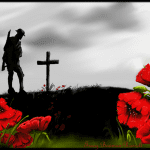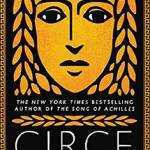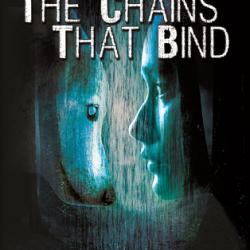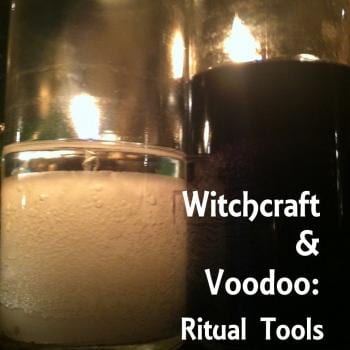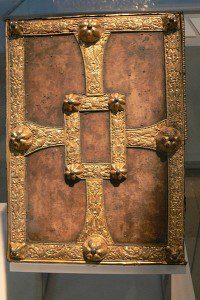
Updated from Agora, September 15, 2014:
In my last article I laid out a list of recommended reading for witches. This article continues that list. A little reminder of my conditions: As I said last time, some of these books are by Pagan authors and some are not. Some are a little scholarly, but since I said “every Witch,” I have deliberately excluded anything that is geared strictly to the academic. Some might require a little explanation as to why they should be included. Please keep in mind that this list is entirely subjective, and in based entirely in my own opinions. I am well-read but no expert, so I’m sure that I will add to this list over time, and maybe there will be more articles on the subject in the future. If you have books to recommend, I’m always excited to find new material, so please let me know in the comments!
Liturgy and Philosophy
Liturgy for the modern Pagan movement is, at best, problematic. There are no writings that are consistently used by all of us. The Charge of the Goddess comes closest, but even that has many variations. So if I’ve recommended something here for liturgy, it’s because I think it offers a good essential grounding in Wiccan liturgical concepts. The recommended reading on philosophy was a little easier. I include the works that I do because I think they illustrate important concepts in Pagan and Wiccan philosophy quite well.
 The Spiral Dance: A Rebirth of the Ancient Religion of the Great Goddess by Starhawk – Yes, if you didn’t read it for its value to the Craft, read it for its liturgy. Starhawk is a gifted poet.
The Spiral Dance: A Rebirth of the Ancient Religion of the Great Goddess by Starhawk – Yes, if you didn’t read it for its value to the Craft, read it for its liturgy. Starhawk is a gifted poet.
The Practice of Witchcraftby Robin Skelton – Skelton was a professional poet as well as a well-known Witch. This book, which has been republished with many different subtitles and also under the title “The Practice of Witchcraft Today,” offers meaningful witchcraft rituals in beautifully written poetry.
Stranger in a Strange Land by Robert A. Heinlein – I doubt that Heinlein had any concept of how influential this sci-fi story would be. But a whole church organization was founded on it, and that group published the most influential Pagan publication in history, and thus, these ways have been fully integrated into modern Paganism. Concepts with origins in this story include the Divine Within, the Gaia Hypothesis, and polyamory. And grokking. I’m certain Heinlein didn’t invent any of them (except the word for grokking,) but because he wrote about them, we have these powerful elements in the modern Pagan movement. Besides, Heinlein was a great writer and you should read him anyway, just because.
The Hogfather, The Wyrd Sisters and I Shall Wear Midnight by Terry Pratchett – These books are, probably quite unintentionally, some of the greatest dissertations on magick, myth and the Craft ever. As a matter of fact, it won’t hurt any Witch to read the whole Discworld series. If it doesn’t make you seriously think about the structure of the Universe, I don’t know what would. Check out this clip from the Hogfather BBC TV series on the nature of belief.
The Other Side of Virtue: Where Our Virtues Come From, What They Really Mean, and Where They Might Be Taking Us and A Pagan Testament: The Literary Heritage of the World’s Oldest New Religion by Dr. Brendan Myers – Myers is a professor of philosophy and a Druid. He’s been considering Pagan ethics and philosophy for many years and writes about them well. I don’t always agree with his conclusions, but his writing provokes thought and encourages you to come to your own conclusions. “The Other Side of Virtue” examines Pagan ethics from the Rede to the Nine Noble Virtues, and “A Pagan Testament” (and its clever subtitle) covers all liturgies that are important to modern Paganism, from the Charge of the Goddess to the Mabinogion. Well worth owning for that alone.
The Chalice and the Blade: Our History, Our Future by Riane Eisler – I had to chew on it a while before deciding to put this book on this list, because it is very political and not all will agree with its conclusions. I don’t agree with all of them myself. Eisler’s thesis is that patriarchy and a fascination with war are intrinsically linked. At any rate, it’s certainly been influential in the modern Pagan movement and it’s worth consideration.
Dreaming the Dark: Magic, Sex & Politics by Starhawk – The foundational book of Pagan activism, which advocates rejecting enclosure, capitalism, and kyriarchy. This is a recent addition to my list because I just had a chance to read it this year. Wish I’d read it years ago.
Magick
If you have an interest in the practice of magick, these books are a great essential primer.
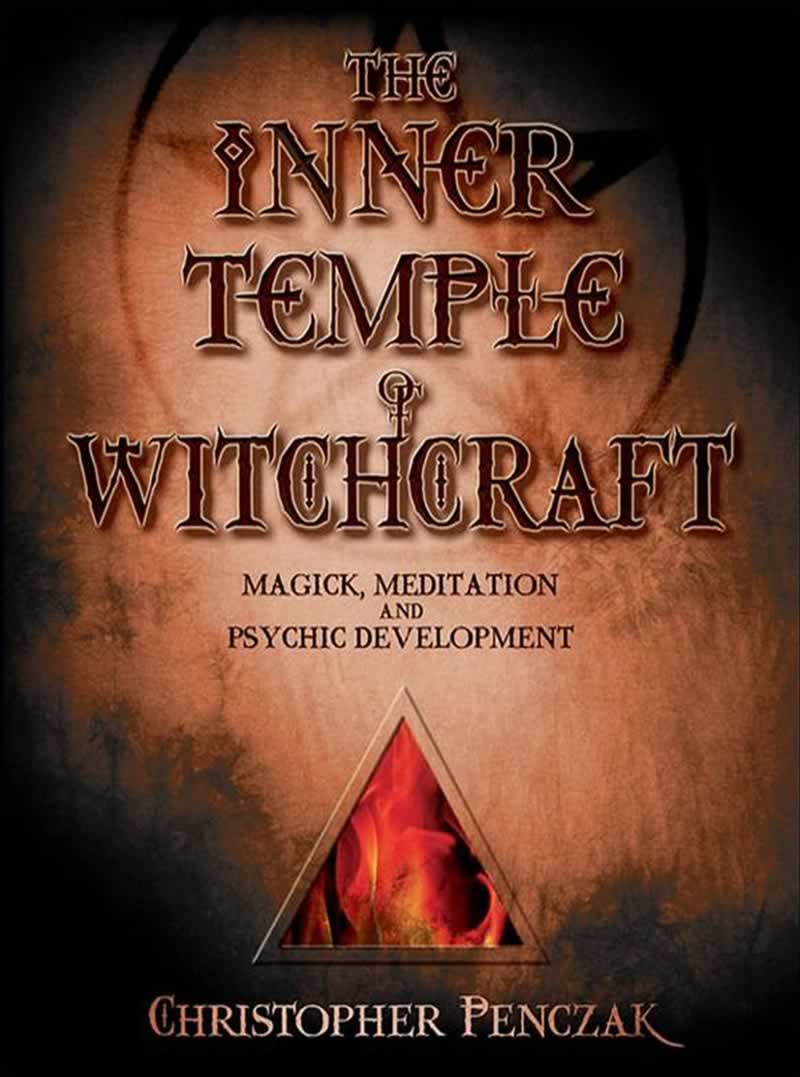 The Inner Temple of Witchcraft: Magick, Meditation and Psychic Development by Christopher Penczak – It gets criticism for being very New Agey; but keep in mind, most of us come to the Craft through the New Age movement these days, and this is the first language we hear to describe these concepts. It’s a good book with simple and intelligent explanations. If you’re just beginning to study magick, this is a great place to start.
The Inner Temple of Witchcraft: Magick, Meditation and Psychic Development by Christopher Penczak – It gets criticism for being very New Agey; but keep in mind, most of us come to the Craft through the New Age movement these days, and this is the first language we hear to describe these concepts. It’s a good book with simple and intelligent explanations. If you’re just beginning to study magick, this is a great place to start.
Magick in Theory and Practice by Aleister Crowley – This is the seminal text on why and how it is that magick works. If you hate everything else Crowley has ever written, read this, because it was brilliant.
Psychic Self-Defense by Dion Fortune – Now that you understand how magick works, read this guide to protecting yourself magickally. Even if you don’t believe in spirits and magickal bugaboos, it’s good psychology.
The Complete Book of Incense, Oils and Brews by Scott Cunningham – There are better books on herbalism. There are better books on incense-making and creating dyes and inks. There are better magickal formularies. But no other book I know of gives you such a good grounding in the basic techniques, and offers varieties of possible magickal substitutions along with essential herbalism and a basic formulary.
Real Magic: An Introductory Treatise on the Basic Principles of Yellow Magic by Isaac Bonewits – Even the Amazon description is brief because the subject is complex. Bonewits breaks down the essential laws, forms, and commonalities of magic with an acerbic sense of humor that makes what could be a very boring and dry (but important) text of classifications into a fun and informative read. I keep referring back to it in my own descriptions and explanations.
Modern Magick: Twelve Lessons in the High Magickal Arts by Donald Michael Kraig – When I read this in the late eighties it was only eleven lessons. Most Witches will dismiss this book immediately because it’s about ceremonial magick. Here’s why you shouldn’t. First, because the Western occult tradition is foundational in Wicca and this book will teach you just enough of what that’s all about that you will understand any reference to it, at least vaguely, from then on. Second, because it is a very effective course in teaching the skills that make you into a skilled practitioner of magick. I picked up this book when I was fourteen years old. DMK suggested it would take a year to work through. I did it in six months. And I’ve never looked back.
Blink: The Art of Thinking Without Thinking by Malcolm Gladwell – This is not a book about magick per se. It’s a book about how “intuitive flashes” might actually be collected knowledge that lingers in our subconscious. In essence, we know things that we don’t realize that we know. Why this is important to practitioners of magick is that first of all, it offers a rational, scientific explanation for how psychic phenomena might work; and second, it points out that some of our subconscious “knowledge” is based in cultural biases and assumptions that we pick up that have no basis in fact. I think that this sort of self-awareness is important, and that it makes your magick more effective.
The Game of Wizards: Psyche, Science and Symbol in the Occult by Charles Ponce – Also published in a later edition with the subtitle “Roots of Consciousness and the Esoteric Arts,” this book illustrates how we invent occult symbolism due to the particular way our consciousness is consistently seeking to make patterns, and how symbolism is our attempt to map our own consciousness. I think this is a great piece of information for any aspiring magickal practitioner to be aware of.
The Dancing Wu Li Masters: An Overview of the New Physics by Gary Zukav – It’s a bit dated, but this introduction to quantum physics will probably make most educated Witches froth at the mouth as we see the principles of magick and mysticism illustrated in the very fabric of reality; and science is beginning to prove it.
(You might want to check out my book on magick too. I wouldn’t presume to put it in a list of essential books on witchcraft, but I wrote the book I wanted to read on the subject. Just sayin’.) 😉
Teaching and Mentoring
These books are of greatest interest to those who teach and mentor others, or those who serve in a clerical capacity in their communities.
 Deepening Witchcraft: Advancing Skills and Knowledge by Grey Cat – So you think you’re past all the 101 material and you want to start teaching? Then do yourself a favor and read this. From ethics to advanced magickal theory to leading group ritual to “feces coagulation,” this is the perfect primer for all who want to take their Craft to the next level.
Deepening Witchcraft: Advancing Skills and Knowledge by Grey Cat – So you think you’re past all the 101 material and you want to start teaching? Then do yourself a favor and read this. From ethics to advanced magickal theory to leading group ritual to “feces coagulation,” this is the perfect primer for all who want to take their Craft to the next level.
All Acts of Love & Pleasure: Inclusive Wicca by Yvonne Aburrow – This is an excellent Wicca 201 for those who have already established a strong Wiccan practice, which examines and expands praxis and theology with an eye to inclusivity. (You can read my review here if you want more information).
The Outer Temple of Witchcraft: Circles, Spells and Rituals by Christopher Penczak – Again, if you want to start leading others, this is a must-have book. It explores the nature of spells and rituals, what makes them work, and what the meaning of Wiccan priesthood is.
Neopagan Rites: A Guide to Creating Public Rituals that Work by Isaac Bonewits – Mostly this is a gripe about Bonewits’ pet peeves in public rituals. But he had a point, so read this to learn what not to do, and why.
Wicca Covens: How to Start and Organize Your Own by Judy Harrow – Harrow was a Wiccan high priestess in a BTW descended tradition with a master’s degree in counseling and a history of interfaith work. We just lost her just a couple of years ago, but this excellent work on group psychology and dynamics is a fitting legacy that I think will guide new Craft leaders for generations to come.
Great Lies We Live By by Dr. Stephanie Burns – This book has nothing to do with Witchcraft. It has to do with how we learn, why we think we can’t do certain things, and how we can break that cycle. It will make you a better student and a better teacher, and a better magickal practitioner too.
Antagonists in the Church: How to Identify and Deal with Destructive Conflict by Kenneth Haugk – This book was written for Christian priests. Hold your nose and read it anyway. Why? Well, have you noticed that there always seems to be some jerk in every group who always has “suggestions” for “how things could be done better,” or who seems like s/he won’t be happy until the group is destroyed? This book explains why these people do what they do, shows you how to identify them at the early stages, and tells you how to get rid of them.
Circle Round: Raising Children in Goddess Traditions by Starhawk, Diane Baker and Anne Hill– If you are intending to do any work with children and youth, you should really read this book. ‘Nuff said.
Grimoire for the Apprentice Wizard by Oberon Zell-Ravenheart – Presented in a style that is reminiscent of Harry Potter, this outstanding book on magick and Paganism for children is full of material that will challenge even some of the most experienced adult Witches. If you want to teach your children about the Craft this is awesome.
The Pagan Book of Living and Dying: Practical Rituals, Prayers, Blessings and Meditations on Crossing Over by Starhawk, M. Macha Nightmare and Reclaiming – Sooner or later, if you are in a position of spiritual leadership, people will come to you for help in dealing with pain and grief. There is no better book for Pagan leaders that I know of. Chock-full of helpful ritual (which, after all, is the essence of Wiccan practice,) this book handles death, divorce, abuse, trauma, and more. One of my favorite elements is a ritual for grieving an abortion or infant-loss. As a mother who has miscarried, it was invaluable to me.
In the Service of Life: A Wiccan Perspective on Death by Ashleen O’Gaea – This one is useful hand-in-hand with the above. This book concentrates specifically on Wiccan/Neopagan views of death and on the practical aspects of dealing with death and grieving. (My review on this one can be found here.)
Handfasting and Wedding Rituals: Welcoming Hera’s Blessing by Raven Kaldera and Tannin Schwartzstein – When you are asked to do your first handfasting, get this book. It covers all levels of Pagan ritual, from the most overt to covert multi-faith options, and every variation of marriage from heterosexual to homosexual to polyamorous to BDSM.
Advanced Practice
The Golden Bough by Sir James George Frazer – Published in many editions, from abridged to twelve volumes, and with several subtitles, this highly influential book was probably the origin of our concept of the God. But it’s dry as toast, and most of its anthropological theories are now in disrepute. You’ll want to read it as part of your practice once you’ve been doing it a while, but if you’re not inclined as a scholar, it’s likely to be a bathroom reader. Read the first three volumes; those are the important ones.
The White Goddess: A Historical Grammar of Poetic Myth by Robert Graves – As above, only applied to our concept of the Goddess.
 Summoning Forth Wiccan Gods and Goddesses: The Magick of Invocation and Evocation by Lady Maeve Rhea – There is no other book that I know of that offers details and practical advice for learning how to draw down the moon. If you want to Aspect divinity, read it.
Summoning Forth Wiccan Gods and Goddesses: The Magick of Invocation and Evocation by Lady Maeve Rhea – There is no other book that I know of that offers details and practical advice for learning how to draw down the moon. If you want to Aspect divinity, read it.
Wicca 404: Advanced Goddess Thealogy by Ezra Free – While again I don’t agree with all of her conclusions, and certainly the Amazon critiques that advise applying an ego-filter are valid, I know of no other book that so thoroughly questions: what IS the goddess exactly?
The Horned God by Jason W. Mankey – Jason wouldn’t want me to put this book on the list because he (rightfully) thinks it needs some editing. Which in no way diminishes its value as a dissertation on the nature of the Horned God of Wicca and the faces that North American Witches tend to find Him in, culturally speaking.
The Uses of Ecstasy: Ritual and Practical Mysticism in Wicca by Samuel Wagar – A somewhat dry but excellently detailed examination of the theology and philosophy of the Great Rite, as written by a scholar of history who is also a Wiccan High Priest.
Honorable Mentions
The Witch-Cult in Western Europe and The God of the Witches byMargaret A. Murray – While, again, the influences of these books are without question, most of their theories have been disproven now. You can still see their influence in the work of Gerald Gardner – which, to me, is sufficient. If you’re a history buff like me you’ll want to read it, but if you aren’t, don’t.
The Gardnerian Book of Shadows by Gerald Gardner and Doreen Valiente, compiled by Aiden Kelly – The link will take you right to www.sacred-texts.com, where you can read it in entirety. As a matter of fact, you can find plenty of interest to Pagan theology at that site. I think it’s a good thing for most Witches to read, but I don’t know if it’s essential, especially if you’re not BTW.
 777 and Other Qabalistic Writings by Aleister Crowley – This was probably first book of correspondences in wide circulation. It’s still highly influential, though probably not as essential as it once was.
777 and Other Qabalistic Writings by Aleister Crowley – This was probably first book of correspondences in wide circulation. It’s still highly influential, though probably not as essential as it once was.
The Holy Book of Women’s Mysteries by Z. Budapest – While the influence of this book is without question, and certainly it’s worth a look to understand modern feminist witchcraft, it is very misandrist. Don’t make your male students read it because it will make them angry. And honestly, it should. I believe the pendulum swing was important at its time, and I think that women’s anger is legitimate, but I think the challenge of our modern Craft is to find inclusive solutions for all and this book will not do that. I consider myself a feminist and I still found myself cringing at much of the language in this book.
The Collected Works of Rumi – Rumi’s ecstatic poetry, grounded in Islam, is probably more influential to modern Paganism than we’d care to admit. It’s not specifically Pagan, however.
The Complete Works of Ovid – Ovid’s devotional work to the Greek deities is still every bit as relevant as it was in his day. I have incorporated much of his work into my rituals and I think it improves them considerably.
The Anglican Book of Common Prayer – Anglicanism probably influenced modern Wicca more than we’d care to admit too. This essential Anglican book lays out a practice and liturgy for the seasons, and I can’t help but see how it must have influenced the beliefs of Margaret Murray and Gardner.
Beyond Good and Evil and The Birth of Tragedy by Friedrich Nietzsche – Nietzsche is problematic because his work was used to bolster Nazi propaganda and is sometimes shaded with fascism and violence. These two works helped define both our ethics and our practice, however.
Man’s Search for Meaning by Viktor E. Frankl – This classic, written by a Holocaust survivor who was also a psychologist, teaches us that we can’t avoid suffering, but we can choose how we cope with it. This is an amazing examination of the Pagan philosophy of choosing to embrace the joys of the world while accepting and finding meaning in the sorrows, although Frankl was, of course, Jewish.
Leaves of Grass by Walt Whitman – Humanism is part of modern Paganism. This book of humanistic poetry is a marvelous declaration of Pagan theology. Read the older editions, not the newer ones.
This is my list of recommended reading for all Witches. I am sure that there are things that I have missed, and I am sure you have your own thoughts to add, and I invite you to do so in the comments. By next year I hope to have added a lot more books on traditional witchcraft and the Craft’s history to the list, so if you can recommend things to point me in the right direction on these topics, please do!
First: A Few Books that I Think Every Witch Should Read (Part 1 of 2)
Like Between the Shadows on Facebook and never miss a post!


